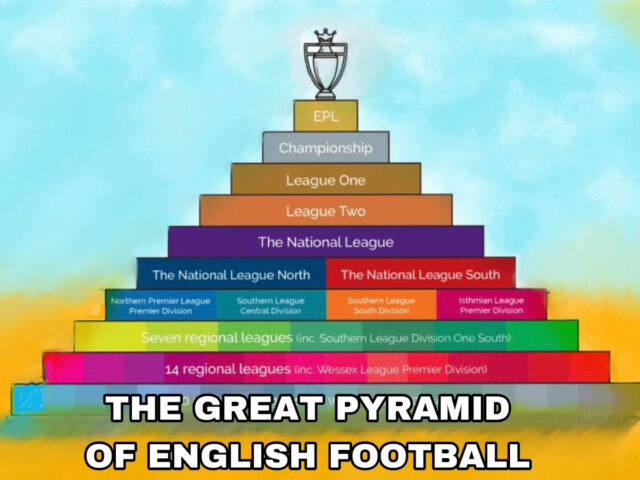In the world of soccer, few concepts carry as much weight and drama as relegation in soccer. It’s a system that keeps leagues competitive, fans on the edge of their seats, and players fighting for their club’s survival. But what exactly is relegation, and why does it matter so much in the beautiful game? Let’s dive into this fascinating aspect of soccer that can make or break teams, careers, and even entire communities.
The Basics of Relegation: A Soccer Tradition
What Is Relegation?
Relegation is a process in soccer where teams that finish at the bottom of a league table are demoted to a lower division, while top-performing teams from the lower division are promoted to take their place. This system creates a constant flow of teams between divisions, ensuring that leagues remain competitive and dynamic.
The Origins of Relegation
The concept of relegation isn’t new – it’s been a part of soccer for over a century. We can trace its roots back to late 19th century England, where it was introduced to maintain fairness and competition in the rapidly growing sport. Since then, it’s become a fundamental part of soccer culture in many countries around the world.
How Relegation Works: The Mechanics of Moving Up and Down
The Relegation Zone
In most leagues, the bottom three or four teams in the standings at the end of the season find themselves in what’s known as the “relegation zone.” These are the positions that spell doom for a club, as finishing here means they’ll be playing in a lower division next season.
Promotion: The Flip Side of Relegation
While some teams face the drop, others celebrate promotion. Usually, the top two or three teams from the lower division earn the right to move up, replacing the relegated teams. This creates a sense of renewal and opportunity for clubs at both ends of the table.
Relegation Playoffs: The Last Chance Saloon
Some leagues add an extra layer of drama with relegation playoffs. These mini-tournaments give teams just outside the automatic relegation spots a final opportunity to save themselves, often pitting them against top performers from the lower division in high-stakes matches.
The Impact of Relegation: More Than Just a Change of League

Financial Consequences
Relegation isn’t just about prestige – it can have severe financial implications for clubs. Moving to a lower division often means:
- Reduced TV revenue
- Lower ticket sales
- Difficulty attracting and retaining top players
- Potential loss of sponsorship deals
For some clubs, relegation can be a financial catastrophe that takes years to recover from.
Emotional Toll on Fans and Communities
The impact of relegation extends far beyond the balance sheet. For fans, watching their team drop down a division can be heartbreaking. Local businesses that rely on matchday crowds may suffer, and the entire community can feel the effects of their team’s misfortune.
Player Careers at Stake
For players, relegation can be a career-defining moment. Some may choose to leave for other top-division clubs, while others might find themselves stuck with reduced wages or limited opportunities. It’s a stark reminder of the precarious nature of a professional soccer career.
Strategies to Avoid Relegation: The Fight for Survival
Mid-Season Managerial Changes
One common tactic for struggling teams is to change managers mid-season. A new coach can bring fresh ideas, motivation, and potentially turn the team’s fortunes around. It’s a risky move, but when relegation looms, desperate times call for desperate measures.
January Transfer Window: Reinforcements Arrive
The winter transfer window offers another lifeline for teams in danger. Bringing in new talent – whether through purchases, loans, or free transfers – can provide the boost needed to climb out of the relegation zone.
Tactical Shifts and Mindset Changes
Sometimes, avoiding relegation requires a complete change in playing style or team mentality. We often see teams adopt more defensive tactics or focus on grinding out results rather than playing attractive soccer. It’s all about survival at this point.
Famous Relegation Battles: When the Drama Unfolds
The Great Escape: Leicester City 2014-2015
Before their fairy-tale Premier League title win, Leicester City pulled off one of the most remarkable escapes from relegation. Bottom of the table with nine games to go, they won seven of their last nine matches to secure safety. It set the stage for their incredible title-winning campaign the following year.
Wigan Athletic’s Rollercoaster Ride
Wigan Athletic became known for their annual relegation battles in the Premier League. For several seasons, they seemed destined for the drop, only to pull off miraculous escapes. Their luck finally ran out in 2013, but not before they won the FA Cup – a bittersweet end to their top-flight stay.
The Heartbreak of ‘Yoyo Clubs’
Some teams find themselves caught in a cycle of relegation and promotion, earning the nickname “yoyo clubs.” Clubs like West Bromwich Albion and Norwich City have experienced this rollercoaster, highlighting the challenges of establishing long-term stability after promotion.
Relegation Around the World: Different Approaches

The English Model
England’s soccer pyramid is perhaps the most famous example of the relegation system. With multiple professional divisions, teams can rise from semi-professional status to the glitz of the Premier League – or fall in the opposite direction.
Relegation in Other European Leagues
While most European leagues use relegation, the specifics can vary:
- Germany’s Bundesliga relegates two teams automatically, with a third entering a playoff
- Spain’s La Liga sends three teams down but uses head-to-head records as a tiebreaker
- Italy’s Serie A has experimented with various formats, including playoffs and financial criteria
Major League Soccer: The Exception to the Rule
In contrast to most of the soccer world, Major League Soccer in the United States doesn’t use relegation. This closed system, more common in American sports, has both defenders and critics in the soccer community.
The Debate: Is Relegation Good for Soccer?
Arguments in Favor
Proponents of relegation argue that it:
- Maintains competitive balance
- Gives smaller clubs a chance to rise to the top
- Keeps matches meaningful throughout the season
- Adds drama and excitement for fans
The Case Against Relegation
Critics of the system point out:
- Financial instability for clubs
- Difficulty in long-term planning
- Potential for panic decisions and unsustainable spending
- Unfairness to well-run clubs who have one bad season
Relegation’s Impact on Player Transfers and Contracts
Relegation Clauses
Many player contracts now include “relegation clauses” that adjust salaries or allow for transfers if the team is relegated. This helps clubs manage their wage bills but can lead to an exodus of talent.
Loan Market Dynamics
Relegated teams often turn to the loan market to bolster their squads, while promoted teams may use loans to test players at a higher level without committing to permanent deals.
The Psychology of Relegation: Mental Toughness Required
Pressure on Players and Managers
The threat of relegation creates immense pressure. Players must perform under the weight of potential career setbacks, while managers know their jobs are on the line with every result.
Fan Expectations and Media Scrutiny
As relegation battles heat up, fan emotions run high, and media attention intensifies. Managing these external pressures becomes a crucial part of a team’s survival strategy.
Life After Relegation: Rebuilding and Bouncing Back
Financial Restructuring
Relegated clubs often need to cut costs dramatically. This can mean selling star players, reducing staff, and renegotiating contracts. It’s a delicate balance between financial prudence and maintaining a competitive squad.
The Challenge of Promotion
Getting back to the top division isn’t easy. The Championship in England, for example, is notoriously competitive. Clubs must adapt to a new league while dealing with the disappointment of relegation.
Success Stories: Teams That Thrived After Relegation
Not all relegation stories end in disaster. Some clubs use the setback as an opportunity to rebuild, refocus, and come back stronger. Manchester City’s relegation in the 1990s led to changes that eventually saw them become one of the world’s richest and most successful clubs.
Conclusion: The Relegation Rollercoaster Rolls On
Relegation remains one of soccer’s most dramatic and consequential systems. It adds a layer of excitement and jeopardy to every season, affecting everyone from multimillionaire players to the most devoted fans. While it can be harsh and unforgiving, relegation is also a testament to the fluid, meritocratic nature of the sport. It ensures that soccer remains a game where dreams can come true, and where complacency is punished. As long as the beautiful game is played, the drama of relegation will continue to captivate and terrify in equal measure.
FAQs About Relegation in Soccer
How many teams are usually relegated each season?
Typically, between two and four teams are relegated, depending on the league and country. In many top divisions, three teams face relegation each season.
Can a team refuse to be relegated?
Generally, no. Refusing relegation can result in severe penalties, including further relegation or even expulsion from the league system.
Do all countries use relegation in their soccer leagues?
Most countries use relegation, but there are exceptions. The United States’ Major League Soccer, for example, does not have a relegation system.
What happens to a club’s players when it gets relegated?
Some players may transfer to other clubs, while others might stay and play in the lower division. Many contracts include clauses that address relegation scenarios.
Has any team ever been relegated from the English Premier League and won the Champions League in the same season?
No, this has never happened. The closest example is when Wigan Athletic won the FA Cup in 2013 but were also relegated from the Premier League in the same season.


